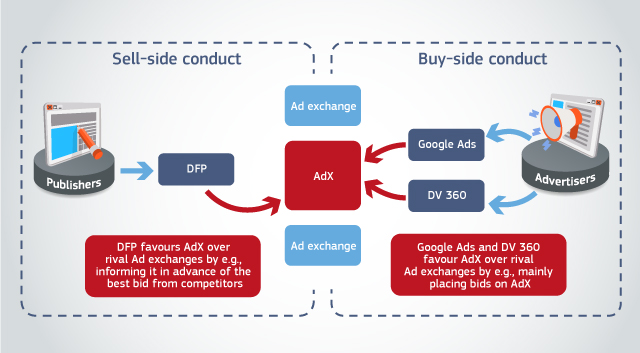
Big tech means big news, and it comes fast sometimes. One thing it always has in common is that it's complicated; often sorting through it all still leaves us scratching our heads.
I don't always have the answers, but my experience and expertise will help me filter out those important bits. The things that matter. The things we really need to care about.
After all, technology is supposed to make things easier and better. Anything else is just a by-product.

Making sense of breaking tech news and seeing how it matters to us.
Judge Amit P. Mehta has decided that Google is a monopoly when it comes to the search and advertising markets. If you use a phone or a computer, you probably agree with that. This is big news and is the first of the Department of Justice's big tech anti-trust trials. Google has another one coming, as does Apple, Amazon, and Meta.
A Google spokesperson gave Android Central the following statement from Kent Walker, Google's president of Global Affairs, in response to the ruling:
"This decision recognizes that Google offers the best search engine, but concludes that we shouldn't be allowed to make it easily available. We appreciate the Court's finding that Google is 'the industry's highest quality search engine, which has earned Google the trust of hundreds of millions of daily users,' that Google 'has long been the best search engine, particularly on mobile devices,' 'has continued to innovate in search' and that 'Apple and Mozilla occasionally assess Google's search quality relative to its rivals and find Google's to be superior.'"
Reading this, I think Google is right, and its search product is the best. I'm not sure if hundreds of millions of people use it because they trust Google or because it's the default, which supports the court's findings. A lot of people don't know if Google Search is the best because they haven't been exposed to alternative options.
Each company has its own set of online fans and detractors. As I type this, people are busy in online comments and on social media arguing why this is unfair and why it's not.
I'm not a lawyer, not even close. That means much of the 286-page-long court decision reads like it's in another language to me. I get the gist of some of it and think some of the findings are valid, and some may not be.
Then again, I'm not a lawyer. I'm a cowboy who wrangles words instead of steers.
Some people are lawyers and have a handle on what all those pages mean and if you are curious about what Google has done and how it broke the law, you should read what they have to say about it. Feel free to ignore the tech-bro Xitter crowd though unless you want to watch the bonfire.
One thing I do understand is that this will have almost no effect on me. I want the DoJ to go after these tech companies and the billions and billions of dollars to make sure they are dotting every i and crossing every t. No single company should have an insurmountable advantage in any market and be able to leverage it to drive competition out of business. Investigate them as much as you can.
I just want it all to actually matter once the dust settles even though I know it won't.
It's important and it does matter for a lot of companies and the whole business around search and online ads. It should matter more and be an effective path toward changes that trickle down to consumers like you and me, but I'm not going to hold my breath. If anything, the price we pay for a new phone will climb a few dollars.
The big tech shakeup is probably going to have the same effect on us regular folks as Microsoft's antitrust trial years ago did. Some words on some pages will change, deals will be renegotiated, and money will change hands. So much money will change hands. For us though? Imagine a new check box when you first sign into an iPhone and you've got the picture.

The rules always favor the players that know how to exploit them. When it comes to search and online ads, that's Google. They're the New England Patriots of internet search. Google will weather this storm through years of appeals, meanwhile shifting its strategies and ways of making money to better comply in case it doesn't get away with it in the end.
In a perfect world, the penalty phase of these tech antitrust trials would be held back and kept secret until all the guilty parties are ferreted out. then swing it down in one big blow of the hammer and shake everything and everyone up.
In the real world, Google will keep on being Google and finding ways to try and make all the money from all the things. The same goes for the rest of the big tech companies that seem to want to set their own rules and policies until they get caught.
One day a company will dethrone google when it comes to search and ads. It ain't today.







